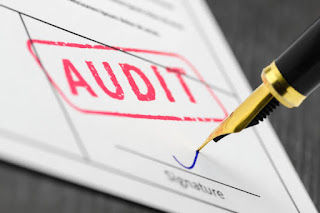
Recent scams have raised serious concerns on the role of auditors and regulatory bodies in the country. To know the root cause for such problems, our team had a small interview with PRAGNESH KANABAR, a Chartered Accountant and a Senior Audit faculty at JK Shah classes.
Excerpts from interview:
Going by the facts in scams like Yes bank, ICICI, PNB etc, do you think auditors played a material role in these scams?
Pragnesh: Auditors do not play a material role in making or planning a scam. The question should be ‘Whether auditor failed to detect the irregularities?’ The answer is Yes, there was a partial audit failure in case of Yes Bank and ICICI but it is difficult to comment the same for Punjab National Bank (PNB) as it was a fraud done by third party having a secret understanding with the employee of PNB by exploiting the weakness in internal controls of an internationally recognized platform for transacting forex deals creating contingent liabilities over PNB which never came on the face of the balance sheet and hence we can’t expect auditor to detect a transaction which never came on record.
What about govt institutions? For instance, RBI had got to know about ICICI scam only after a whistleblower complained it. It had done an inspection in 2016 where it stated about finding questionable transactions without conclusive evidence. Why has that been the case?
Pragnesh: Unfortunately, the processes of annual inspection done by RBI and its department of supervision remain largely ambiguous and inconsistent with the international standards. From Financial year 2012-2013 to Financial yeas 2014-2015 there was enough evidence pointing out to increasing credit risk and financial stress on ICICI bank due to its top 20 borrowers (Videocon being one of them). However, there were no clear recommendations and action plans developed to tackle it. This was an avoidable financial stress which was neglected.
What’s your take on possible collusion of auditors and higher authorities? Although there are laws and regulations on auditors independent nature but scams like Amrapalli have clearly shown the violation of such laws.
Pragnesh: I am not trying to unnecessarily defend the audit fraternity but our laws have left auditors in a very delicate position. On one hand, law gives huge authority to the board of directors for recommending the auditor to the members and on the other hand, law expects auditors to do their job by staying 100% independent without fearing frictions with the client. Imagine students paying a professor for coaching and then the same professor also has to examine the paper and issue degree to the student. That’s not how system should work. Law needs to set up an independent authority which appoints the auditor without any interference from the board of directors and then one can expect auditor to discharge his duties without worrying about the relationship with the client.
Scams like Karvy have raised some serious questions on the duties of auditor (especially in the case of loans and advances). What’s your view?
Pragnesh: By large my view is that law should eliminate even an inch of dependence on the client for securing our appointment as auditors and then introduce the concept of ‘financial terrorism’, fixing the liabilities of the management failure followed by the audit failure because auditors are not the first line of defense.
Additionally, we must not forget the phrase that with great power comes great responsibility and hence the other side of it is that with limited power comes limited responsibility. Right from extracting data to the analysis of data and reporting, if we analyze the laws, we will realize that auditors are at the mercy of the management and there is minimum legal power given to the auditor which restricts him in his examination.
Do you think our auditors and government institutions are having enough technological literacy because services like cryptocurrency trading are now being allowed by RBI? Also, how does that affect the audit functions in the future.
Pragnesh: This is probably the best question. With the increasing use of technology in transacting the business, it has become imperative for auditors to develop proficiency (not just working knowledge) over technological aspects. Unfortunately, the syllabus and the exam design of the institute (ICAI) does not have enough focus on the technological aspects. Even the regulators (except in some cases) are not making technological proficiency mandatory for the auditors. We have the infrastructure as well as enough knowledge base to tap on and develop proficiency over technology. But we need willingness by the regulators and the institute to mainstream technological proficiency.
Technology will have big impact on audit functions because it is difficult to develop a trail (tracing from start to end) in a transaction done completely by automated systems whereas under manual environment, trail can be developed at each stage of the transaction. Hence, we need the technological proficiency to trace the transactions from beginning to end and detect manipulations, if any.
Our last question, what appropriate measures should our educational institutions related to auditing and government should do in betterment of the next generation auditors, particularly in identifying such scams.
Pragnesh: In my opinion, following changes are required:
Technological proficiency should be mandatory with theory and practical exams.
After inter-ca level, subject specialization should be offered for final-ca (for example- students need to select between audit and tax. Students who select audit should be given various subject of audit- audit of insurance, audit of banks, audit of manufacturing companies, audit of other service sector companies etc).
In the paper pattern- from theory question answers, we need to shift to case study based questions.
Lastly, degree should be given based upon an interview/oral exams done by the moderators appointed by The Institute of Chartered Accountants of India(ICAI) and also, such interviews should be monitored by the ICAI top executives to eliminate chances of biased results.

コメント